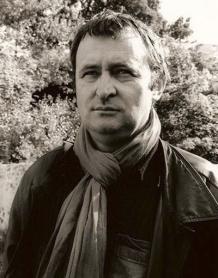Velibor Čolić, writer

Velibor Čolić est né le 13 juin 1964 à Odžak au nord de la Bosnie-Herzégovine, mais grandit à Modriča, une ville à moitié musulmane avant la guerre. Sa famille est croate et installée en Bosnie depuis des siècles. Il suit des études de littérature yougoslave à Sarajevo et Zagreb et soutient une thèse sur les poètes expressionnistes des débuts du XXe siècle. Il devient le représentant de la génération d’auteurs rassemblés autour du magazine littéraire croate Quorum.
Lorsque l’armée yougoslave lance son offensive le 6 avril 1992, Velibor devient soldat dans l'armée de République de Bosnie-Herzégovine, formée le 15 avril 1992 pour défendre le pays. A la suite de l’accord de coopération militaire du 21 juillet entre les Croates et les Bosniaques Velibor Čolić, considéré comme déserteur, est enfermé avec près de trois mille Bosniaques dans le camp de Slavonski Brod. Il s’évade le 11 juillet 1992. Sa maison et ses manuscrits ont été réduits en cendre.
Au mois d'août de la même année, il se rend en France et est reconnu réfugié en septembre. Accueilli à Strasbourg par le Parlement international des écrivains pour une résidence de trois mois, il travaille dans une bibliothèque et collabore aux Dernières Nouvelles d'Alsace. Dès 1993, il publie Les Bosniaques, recueil édité plusieurs fois et adapté pour le théâtre.
Il retrouve ensuite l’humour et la poésie de ses premiers textes avec des livres écrits directement en français, comme Jésus et Tito, ouvrage où il égrène les souvenirs de son pays natal comme on feuillette un album-photo, Sarajevo Omnibus (2012) est une évocation de la ville de Sarajevo à travers différents personnages historiques ou lieux emblématiques qui ont tous un rapport avec la tragédie inaugurale du XXe siècle qu’est l’assassinat de l’archiduc François-Ferdinand le 28 juin 1914. Son dernier roman, Ederlezi (éditions Gallimard), sous-titré "Comédie pessimiste", raconte la vie d'un orchestre tzigane à travers les réincarnations successives de son meneur sur trois époques.
Il a reçu le Prix du Rayonnement de la langue et de la littérature française décerné par l’Académie française pour l'ensemble de son œuvre en 2014.